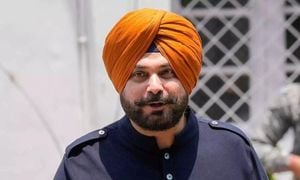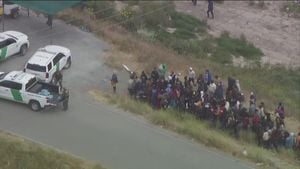North Korean troops are officially on the frontlines of the Ukraine conflict, marking the first time they have been deployed for combat beyond their borders. Recent reports confirm the presence of over 10,000 North Korean soldiers, who are now engaged alongside Russian forces against Ukrainian troops. This situation has raised alarm bells internationally, as the U.S. State Department expressed significant concern about Moscow’s reliance on North Korea for military support.
The deployment was highlighted by State Department spokesperson Vedant Patel, who mentioned during a press briefing on November 13, 2024, "We are incredibly concerned by Russia's decision to turn to the DPRK to supply soldiers to continue their brutal war against Ukraine." Patel confirmed the movement of North Korean soldiers to eastern Russia, primarily to the Kursk region, where they have begun active combat operations.
According to Ukrainian sources, intense fighting is taking place as both Russian and North Korean troops face off against Ukrainian forces. The involvement of North Korean soldiers is not just nominal; they have reportedly received training from Russian military on equipment such as mortars and infantry weapons. This training prepares them for combat roles, which raises questions about their effectiveness and integration within the Russian military framework.
The strategic backdrop to this development is tied to broader military treaties between Russia and North Korea. Recently, North Korea ratified a defense cooperation treaty with Russia, formalizing mutual support commitments should either country come under attack. This treaty was initially agreed upon by North Korean leader Kim Jong Un and Russian President Vladimir Putin back in June 2024.
Compounding this situation is the recent escalation of conflict, particularly with reports indicating fresh incursions by Ukrainian forces to regain control over parts of the Kursk region. Since August, Ukrainian forces have made substantial territorial gains, which has sparked fears of retaliatory actions from Russia, potentially supported by North Korean military strength.
U.S. officials have indicated this development could lead to significant shifts on the battlefield. The New York Times revealed estimates of around 50,000 troops—Russian and North Korean—mobilizing for what appears to be a strategic push to reclaim lost territory.
Military analysts suggest potential technological exchanges between Russia and North Korea could accompany these deployments. South Korean intelligence has hinted at Russia possibly sharing missile technology with Pyongyang, with concerns growing about the nature of military cooperation being established. Notably, North Korea’s recent missile tests have led some to speculate about the involvement of Russian technological expertise.
The ramifications of North Korea’s battlefield involvement extend beyond mere troop contributions. There are concerns about Russia seeking to leverage North Korea's troop deployments not just for immediate military gains but also for enhancing their own military capabilities. For North Korea, this partnership appears to be twofold: it receives financial support and military technology from Russia, enriching its own military infrastructure.
The integration of North Korean forces raises logistical challenges, with U.S. officials noting issues like command structure, language barriers, and operational interoperability. During his statements, Patel stressed the importance of overcoming these barriers for the success of North Korean troops on the battlefield, emphasizing how their performance could significantly influence the course of the conflict.
North Korea's leader Kim Jong Un, described as pursuing aggressive military ambitions, appears to be exploiting the situation to gain technological enrichment and resolve some of North Korea’s chronic military deficiencies. Experts believe securing missile re-entry technology from Russia could be among Kim’s top priorities, indicative of the broader strategic military aims he has set for North Korea.
While the international community watches closely, the significance of North Korea's military expedition to Ukraine cannot be understated. This development signifies not just Russia's desperation for manpower but also North Korea's potential rise as a military partner, changing the playing field of war dynamics. The full extent of how these dynamics will influence the course of the conflict remains yet to be seen as both Russian and North Korean forces brace for what could be decisive engagements against Ukraine.
Overall, the unexpected deployment of North Korean troops adds layers of complexity to the already fraught tensions surrounding the Ukraine conflict. The interplay between these nations' military strategies could alter the stakes, prompting responses and counter-responses from Ukraine and the wider international community as they monitor this unprecedented military collaboration.
Moving forward, officials on both sides of the conflict are gearing up for potential escalations, with the specter of larger offensives looming. The next chapters of this war may be heavily influenced by the Russian-North Korean alliance, unearthing new challenges and changing the calculus for Ukraine and its allies.



